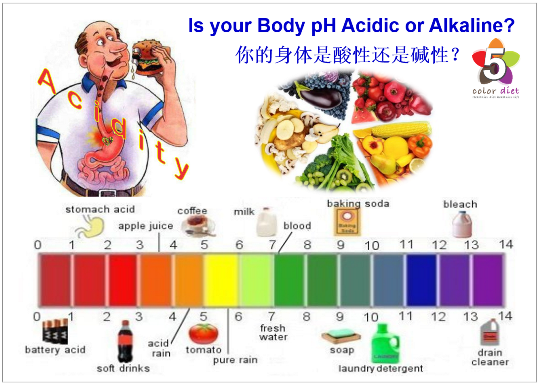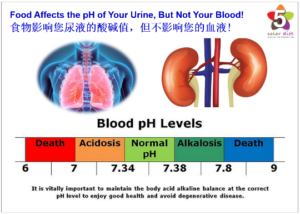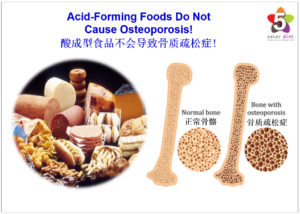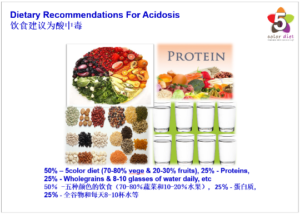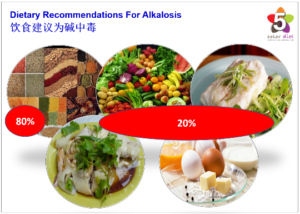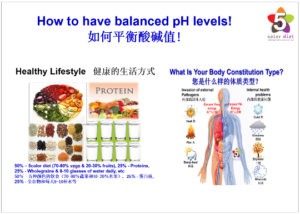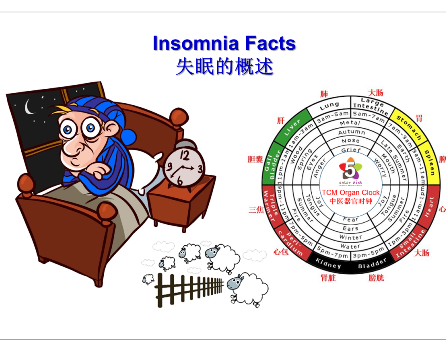
Most people heard about body pH but know little about about the role it plays in the healthy functioning of the human body. Since most of the body is liquid, the pH level has profound effects on body chemistry, health and diseases. Our body’s pH management regulates breathing, circulation, digestion, elimination, hormone production and immune defense.
Nearly all biological functions are dependent upon the acidity or alkalinity of the liquid environment. pH is a measure of the relative acidity or alkalinity of a solution where a pH of 7 is neutral, less than 7 is acidic and greater than 7 is alkaline or basic. The natural pH of the human body and hence normal biologic function is at a pH of 7.4, which is slightly alkaline. A good measure of body pH is to evaluate the pH of the blood which is largely reflective of the entire body. When blood pH drops significantly below 7.4, a condition called acidosis occurs. Conversely, an increase above pH 7.4 results in alkalosis. Imbalances or irregularities that result in acidosis or alkalosis may be detrimental to normal physical and metabolic processes, potentially resulting in moderate-to-severe health complications.
Research shows that unless the body’s pH level is slightly alkaline, the body cannot heal itself. If your body’s pH is not balanced, you cannot effectively assimilate nutrients & can cause many health problems eg: bacteria growth, chronic diseases (Eg: high blood pressure, cholesterol, diabetes, osteoporosis, etc), fungus & parasites, etc. According to the World Health Organization, health effects are most pronounced in pH extremes. Drinking water with an elevated pH above 11 can cause skin, eye and mucous membrane irritation. On the opposite end of the scale, pH values below 4 also cause irritation due to the corrosive effects of low pH levels. World Health Organization warns that extreme pH levels can worsen existing skin conditions.
Your body constantly works to maintain a proper pH balance between 7.35 and 7.45. As a reference, the pH of pure water is 7. When your pH levels fall below 7.35, clinically you have acidosis and your central nervous system will start to depress. If your pH level falls below 7, you have severe acidosis, which can cause a coma and ultimately become fatal. When your pH level rises above 7.45, you have alkalosis. Alkalosis makes your nervous system hypersensitive, resulting in muscle spasms and convulsions.
Food Affects the pH of Your Urine, But Not Your Blood
The acidity of your blood is measured by determining its pH. A lower pH means that your blood is more acidic, while a higher pH means that your blood is more basic. The pH of your blood should be around 7.4. According to the American Association for Clinical Chemistry (AACC), Acidosis is characterized by a pH of 7.35 or lower. Alkalosis is characterized by a pH level of 7.45 or higher. While seemingly slight, these numerical differences can be serious. Acidosis can lead to numerous health issues, and it can even be life-threatening.
pH stands for power of hydrogen, which is a measurement of the hydrogen ion concentration in the body. The total pH scale ranges from 1 to 14, with 7 considered to be neutral. A pH less than 7 is said to be acidic and solutions with a pH greater than 7 are basic or alkaline. Our ideal pH is slightly alkaline – 7.30 to 7.45. It is important to note that the pH value varies greatly within the body. Some body area is acidic, while other area is alkaline. There is no set level. The stomach is loaded with hydrochloric acid, giving it a pH value between 2 and 3.5 (highly acidic) which is necessary to break down foods.
On the other hand, human blood is always slightly alkaline, with a pH between 7.35 and 7.45.
The blood pH value falling out of the normal range is very serious which your cells would stop working and can be fatal if untreated. However, this only happens during certain disease states, and has absolutely nothing to do with the foods you eat from day to day. The body has many effective mechanisms to closely regulate the pH balance in your body. This is known as Acid-Base Homeostasis. These mechanisms make it near impossible for outside influences to change the pH value of the blood and food simply cannot change your blood pH.
However, food can definitely change the pH value of the urine, although the effect is somewhat unreliable. It can be influenced by many factors other than diet. Foods, drinks and supplements can affect the acidity or alkalinity of urine, but it is the only fluid that is affected. In fact, excess acid or base is excreted in the urine to help maintain proper pH balance in the body. Therefore, if you are using test strips and when your urine pH result is alkaline, this has very little (if any) relevance to the alkalinity of your blood, or your overall health because urine pH is actually a very poor indicator. While a blood pH test done by your doctor is most accurate which your doctor will also measure your blood’s bicarbonate and chloride to identify for other possible health problems.
Certain food groups in acidic, alkaline or neutral types are:
Acidic: Meat, poultry, fish, dairy, eggs, grains and alcohol.
Neutral: Natural fats, starches and sugars.
Alkaline: Fruits, nuts, legumes and vegetables. Also, includes Cold pressed oils but do take note that Cold pressed oils after high temperature cooking of 121 degrees Celsius & above will turn acidic and produce carcinogens which can damage our DNA & may cause cancer.
Proper food combining is based on the following principles:
(1) Fruits require an Alkaline digestive environment. Do not mix fruits with vegetables, grains or proteins. If combining fruits, do not mix acidic fruits with sweet fruits.
(2) Proteins require an Acid digestive environment. Proteins ideal combination is with vegetables. Do not mix proteins with carbohydrates and starches.
(3) Carbohydrates & Starches require an Alkaline digestive environment. Carbohydrates & Starches ideal combination is with vegetables. Do not mix Carbohydrates & Starches with proteins.
(4) Avoid drinking large sips of cold water with your meals. Water can dilute your digestive fluids, which can slow down digestion. Instead, it is best to have small sips of room temperature water with your meals and focus on drinking the majority of your daily water intake away from meals. You can support your overall digestive process by drinking a glass of apple cider vinegar or lemon water about 30 minutes before a meal.
(5) Our stomach cannot be both acid and alkaline at the same time because acid and alkaline digestive juices will neutralize each other and cause bloating or fatigue. Proper foods combining can help improve your digestion and assimilation of nutrients and may even be helpful for those who have a compromised digestive system, or suffer from digestive disorders, such as irritable bowel syndrome (IBS). Advisable to apply the right foods combinations because each macronutrient in proteins, carbohydrates, and fats digests at a different speed which requires the release of different digestive solutions and enzymes to be broken down.
Improper food combinations can also “confuse” the body, by demanding the body to release several types of digestive enzymes at once. This can further slows down digestion and cause the post-meal sluggishness by using up even more of the body’s digestive energy. Understanding food combining rules can also help support the health of your entire gut. When digestive function is slow, food has the opportunity to putrefy and ferment in your digestive tract, which can cause the release of toxins. When food is poorly digested, undigested food particles can also end up in your bloodstream and cause food sensitivities. Undigested food can also feed the “unfriendly” bacteria in your gut, such as yeast, which can result in digestive conditions like candida.
Acid-Forming Foods Do Not Cause Osteoporosis
Osteoporosis is a progressive bone disease characterized by a decrease in bone mineral content. Osteoporosis is particularly common among postmenopausal women and can drastically increase the risk of fractures.
Many alkaline diet enthusiasts believe that in order to maintain a constant blood pH, the body takes alkaline minerals (such as calcium) from your bones to buffer the acids from the acid-forming foods you eat. According to this theory, acid-forming diets such as the standard Western diet will cause a loss in bone mineral density. This theory is known as the “acid-ash hypothesis of Osteoporosis.”
The glaring problem with this theory, is that the function of the kidneys is completely ignored. Our kidneys main roles are fundamental to removing acids and regulating body pH. The kidneys produce bicarbonate ions that neutralize acids in the blood, a sustainable process which enables the body to regulate blood pH. Our respiratory system is also involved in controlling blood pH. When bicarbonate ions from the kidneys bind to acids in the blood, they form carbon dioxide (which we breathe out) and water (which we pass out as urine). The bones are actually not involved in this process at all.
Another problem with the acid-ash hypothesis, is that it ignores one of the main drivers of Osteoporosis, a loss in the protein collagen from bone. Ironically, this loss of collagen is strongly linked with low levels of Orthosilicic Acid and Ascorbic Acid (Vitamin C) in the diet.
Looking at the research, zero observational studies have found a relationship between dietary acid and bone density or fracture risk. In fact, there is not even a relationship between urine pH and bone health. Contrary to popular belief, high protein diets (acid forming) are actually linked with healthier bones. This area of research is not definite by any means, but it does suggest that animal protein, the most acid-forming food of all, is actually beneficial for bone health.
Looking at clinical trials, many large reviews have concluded that acid-forming diets have no impact on calcium levels in the body. They help to improve bone health by increasing calcium retention and activating the Insulin-like Growth Factor (IGF-1) hormone, which stimulates repair of muscle and bone. This reinforces the studies that link a high protein (which happens to be acid forming) intake with better bone health.
Acidity and Cancer
The most comprehensive review available on the relationship between “diet-induced” acidosis and cancer concluded that there is no direct link. Despite this evidence, many health experts still argue that cancer only grows in an acidic environment and can be treated or even cured with an alkaline diet. But this idea is flawed for several reasons.
First and most importantly, food cannot influence blood pH. Secondly, even if we assume that food could dramatically alter the pH value of blood or other tissues, cancer cells are not restricted to acidic environments. In fact, cancer grows in normal body tissue which has a slightly alkaline pH of 7.4. Many experiments have confirmed this by successfully growing cancer cells in an alkaline environment.
And while tumours grow faster in acidic environments, the tumours actually create this acidity themselves. It is not the acidic environment that creates the cancer, it is the cancer that creates the acidic environment. Current research shows that there is absolutely no link between an acid forming diet and cancer. Cancer cells also grow in alkaline environments.
What you eat can have a profound effect on your cancer risk, but the acidity or alkalinity of foods is not important. Instead, focus on making dietary choices that can truly affect your risk: Eat a wide variety of vegetables, fruits, whole grains and beans; Limit consumption of red and processed meats; Enjoy alcohol in moderation.
-
Dietary Recommendations For Acidosis (Acidic pH level 0-7)
When your body fluids contain too much acid, it is known as Acidosis. Acidosis occurs when your kidneys and lungs cannot keep your body’s pH in balance. Many of the body’s processes produce acid. Your lungs and kidneys can usually compensate for slight pH imbalances, but problems with these organs can lead to excess acid accumulating in your body.
In a constant state of Acidosis, your body uses its available minerals to help balance its pH levels. Calcium is the most important mineral your body uses to neutralize acid. When your body repeatedly leaches calcium from your bones, you may start to develop conditions such as osteoporosis. Acidosis is also a major factor in stressing your body and increasing your cortisol levels, which affects sleep patterns. Acidosis can cause kidney stones, lower growth hormones, increased body fat and a reduction in muscle mass.
Particulars Description Causes Of Acidosis • Metabolic Acidosis is a condition in the body’s acid-base balance that results in excessive acidity of the blood. It may occur when acids are produced in the body faster than they are excreted by the kidneys or when the kidneys or intestines excrete excessive amounts of alkaline from the body. • Respiratory Acidosis results from a build-up of carbon dioxide in the blood (hypercapnia) due to hypoventilation which is most often caused by pulmonary problems eg: asthma, bronchitis, pneumonia, etc.
• Lactic Acidosis occurs when the blood pH becomes too acidic due to presence of excess lactic acid caused by anaerobic breakdown of the glucose in the cells leading to tissue hypoxia.
• Renal Tubular Acidosis is a medical condition that involves an accumulation of acid in the body due to a failure of the kidneys to acidify the urine.
• Other factors include eating a high-fat diet, low-carbohydrate diet, kidney failure, dehydration, diabetes, obesity, aspirin or methanol poisoning, etc.
Symptoms Of Acidosis Anger, anorexia, arthritis, bad breath, cold sores, constipation, diarrhea, health problems (adrenal glands, asthma, diabetes, kidneys, liver, stomach), fear, fever, frequent sighing, insomnia, low blood pressure, malnutrition, perspiration (acidic, strong), recessed eyes, stress, stools (dry, foul-smelling & hard), teeth sensitivity to vinegar & citrus fruits, toxemia, water retention, etc. Recommended Food Sources For Improving Acidosis Acidophilus, almonds, alfalfa, apple, apple cider , apricot, avocado, banana, barley grass, beancurd, beetroot, berries, broccoli, cabbage, carrot, cauliflower, celery, cherries, chestnuts, cayenne, cinnamon, coconut- fresh, cucumber, curry, dandelion, dates, eggplant, fermented vegetables, figs, garlic, green beans, green peas, ginger, grapes, grapefruit, honeydew melon, kelp, lime, lemon, millet, mineral water, miso, molasses, mushrooms, mustard greens, nectarine, onions, orange, peach, pear, peppers, pineapple, pumpkin, radish, raisins, rhubarb, seaweed, sea salt, spinach, spirulina, sprouts, sweetener- stevia, sweet potatoes, tangerine, tempeh, tropical fruits, tomato, umeboshi plums, watermelon, watercress, wheatgrass, whey protein powder, yogurt, etc. Diet 50% in raw fruits & vegetables especially green color fruits & vegetables. Daily drink 8 to 10 glasses of water to neutralize the acids & detoxify the body.
Avoid or Least Intake Of Foods For Improving Acidosis Animal protein- meat/ poultry, beans, blueberries, cereals, crackers, cranberries, eggs, excessive Vitamin C (Use non-acid forming) & Vitamin B3, grains, macaroni, plums, prunes, foods- wheat/ oily/ processed & sugar, etc. Supplementary For Improving Acidosis Herbs: Alfalfa, Barley Grass, Celery, Dandelion, Elder Bark, Ginger, Hops, Kelp, Lecithin, Maitake, Wheatgrass & Willow Bark, etc. Amino Acids, Vitamins & Minerals: Vitamin A, Vitamin B Complex, Calcium, Magnesium, Multi-Enzyme, Phosphorus, Potassium & S-Adenosyl-Methionine (SAME), etc.
Others: Acidophilus, Apple Cider Vinegar & Bee Pollen, etc.
-
Dietary Recommendations For Alkalosis (Alkaline pH level 7-14)
Alkalosis is a condition in which the body fluids have excess base (alkali). This is the opposite of excess acid (acidosis). It can occur due to decreased blood levels of carbon dioxide, which is an acid. It can also occur due to increased blood levels of bicarbonate, which is a base. This condition may also be related to other underlying health issues such as low potassium, or hypokalemia.
The kidneys and lungs maintain the proper balance (proper pH level) of chemicals called acids and bases in the body. Decreased carbon dioxide (an acid) level or increased bicarbonate (a base) level makes the body too alkaline, a condition called alkalosis.
Particulars Description Causes Of Alkalosis • Metabolic Alkalosis is a pH imbalance in which the body has accumulated too much of an alkaline substance, such as bicarbonate, and does not have enough acid to effectively neutralize the effects of the alkali. • Respiratory Alkalosis is a condition marked by low levels of carbon dioxide in the blood due to breathing excessively. Any lung disease that leads to shortness of breath can also result in respiratory alkalosis.
• Compensated Alkalosis occurs when your normal pH balance is restored, but carbon dioxide and bicarbonate levels remain abnormal.
• Hypochloremic Alkalosis occurs when there is a significant decline of chloride in your body, often due to prolonged vomiting or sweating. Chloride is an important chemical needed to maintain balance in bodily fluids, and it’s an essential part of your body’s digestive fluids.
• Hypokalemic Alkalosis occurs when your body lacks the normal amount of potassium. We normally get potassium from our food, but not eating enough of it is rarely the cause of a potassium deficiency. Other causes of potassium deficiency are kidney disease, excessive sweating, and diarrhea, etc. Potassium is essential to the proper functioning of the heart, kidneys, muscles, nervous system and digestive system.
Symptoms Of Alkalosis Allergies, asthma, blood – thick, clot, bone spurs, bursitis, chronic indigestion, cough, creaking joints, diarrhea, diet- poor, drowsiness, edema, endocrine imbalances, high cholesterol, hypertension, hypothermia, menstrual problems, night cramps, osteoarthritis, prostate, protruding eyes, seizures, skin (burning, itching sensations & thickening), sore muscles, stools (dry & hard), vomiting, etc. Recommended Food Sources For Improving Alkalosis Alfalfa, almond milk, amaranth, animal protein- meat/ poultry, asparagus, bacon, barley, barley grass, beans- all (Except green beans), blueberries, bread, bran- oat/ wheat, butter, Brussels sprouts, buckwheat, canned fruits, chick peas, coconut- dried, corn, corn syrup, carob, cocoa, crackers, cranberries, currants, dried fruits, eggs, grains, lentils, legumes, ice-cream, fish- freshwater, macaroni, milk, nuts, oats, oils- all, olives, organ meats, parsley, plums, prunes, quinoa, seafood, seeds, spaghetti, sugar, vinegar, walnut, wheat, wheatgerm, wheat grass, winter squash, etc. DIET 80% in grains & 20% in fruits/ vegetables/ fish/ chicken/ eggs/ cheese. Daily drink 8 to 10 glasses of water to neutralize the acids & detoxify the body.
Avoid or Least Intake Of Foods For Improving Alkalosis Salt. Moderation in Vitamins & Minerals Except those mentioned below. Supplementary For Improving Alkalosis Herbs: Barleygrass, Cranberries, Rose Hips, Wheatgrass & Wheatgerm, etc. Amino Acids, Vitamins & Minerals: Vitamin B complex, Vitamin C with Bioflavonoids, Vitamin D3, Vitamin E, Betaine Hydrochloride (HCI), Co-Enzyme A, L-Cysteine, Methyl-Sulfonylmethane, S-Adenosylmethionine & Selenium, etc.
-
How to have balanced pH levels
Having balanced pH levels is an important part of maintaining a healthy lifestyle. When the pH is imbalance, the body & mind suffers as well as relationships. Therefore, it is important to cultivate healthy eating habits and have positive mental attitude.
Advisable to consume daily balanced food diet: take ½ plate of 5 color fruits & vegetables, ¼ plate of proteins (fish, chicken), ¼ plate of whole grains (cereals, nuts, seeds, black rice, brown rice, millet, quinoa and 8-10 glasses of water including juices & soups).
Identifying your body constitution type eg: heaty (Yin Deficiency), cold (Yang deficiency) or low energy (Qi deficiency) can help to improve your health problems’ symptoms and strengthen your immunity better by choosing the right food diet. Find out more at: https://www.5colordiet.com/?p=5960&lang=en
Consult Health Expert Is The Best Way To Understand Which Type Of Body Constitution You Belong! To find out more: email us at: enquiry@5colordiet.com, wechat ID: lingai1888 or call us at HP: +65 97101888.












